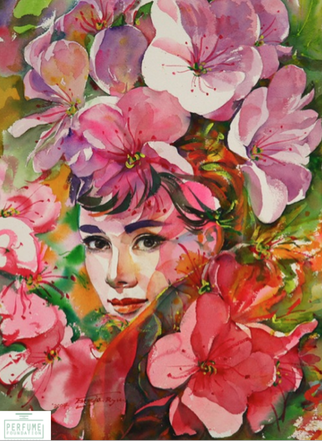Author: Terry Johnson
It is quite easy and understandable to get caught up in the fast pace and stress of our 21st Century culture and miss the importance of how greatly flowers can positively affect our lives in many almost metaphysical ways.
Ancient cultures certainly recognized these phenomena involving the connections between human experience and flowers, which explains the consistent presence of flowers at important societal ceremonies, such as births, marriages, and funerals.
Besides the symbolism flowers represent (the German philosopher Goethe claimed when he looked at a flower with the naked eye, he could instinctively experience our whole cycle of existence) as well as the "meanings" associated with individual flower varieties or colors, there is certainly much more. Flowers truly do touch us profoundly and mysteriously.
With consumers putting a greater emphasis on improving their indoor environment, we have a great opportunity to educate flower shop professionals, and ourselves with how wonderfully flowers help us all achieve improved health, happiness, and productivity. For instance, since some consumers practice Feng Shui, they can count on the ability of flowers to help balance the energy between natural and man-made objects central to Feng Shui.
Drawing from science, several universities have released similar studies finding solid links between flowers and human health, happiness, and workplace productivity, confirming what many have observed intuitively, and seeming to verify what ancient cultures have emphasized for thousands of years.
For example, Rutgers University's study revealed “the presence of flowers triggers happy emotions, heightens feelings of life satisfaction and affects social behavior in a positive manner far beyond what is normally believed,” according to Dr. Jeannette Haviland-Jones, Professor of Research at Rutgers and lead researcher on the study. “What’s most exciting about this study is that it challenges established scientific beliefs about how people can manage their day-to-day moods in a healthy and natural way,” explained Haviland-Jones.
Could it be science is finally catching up to this power that flowers possess, much like the medical field has come to accept acupuncture as a viable, mainstream solution to a wide range of human health problems?
You don’t have to convince Dianne Morgado, Morgado Nursery, Keaau, Hawaii. Diagnosed with breast cancer in 1991 and having left a career in banking and finance behind, Dianne was invited to help a friend with an orchid growing operation he was starting up. Stressed out, feeling down and without much self-confidence, Dianne discovered that growing and just being around orchids was a “life-affirming and life-changing” experience. She was so taken by the experience she decided to start her own orchid growing business in 2002, which has three greenhouses and is still growing. Not surprisingly, Dianne credits orchids with helping make her a cancer survivor. Listening to Dianne speak so lovingly of orchids is much like reading the noted 19th Century French author Marcel Proust, who, when thinking of the silk-and-satin texture of orchids, spoke of “the passionate longing one feels sometimes for a particular flower.”
What seems to be the unifying theme here with acupuncture, Feng Shui, and the therapeutic and uplifting effects of flowers is energy. Perhaps the Ancients were right, and the secrets of health, happiness and productivity is the flow of energy within ourselves, within our environment and the recognition that flowers enhance connectivity between the two.
It is fitting that the flower industry is now in the position of offering consumers a range of products, not just for their beauty and artistry, but more importantly because they provide that valuable connection and balance between the natural world and our own stressed out world.
This makes it even more important for all of us to work towards giving consumers the freshest, longest lasting flowers that will encourage everyone to make flowers part of their daily lives.

 RSS Feed
RSS Feed